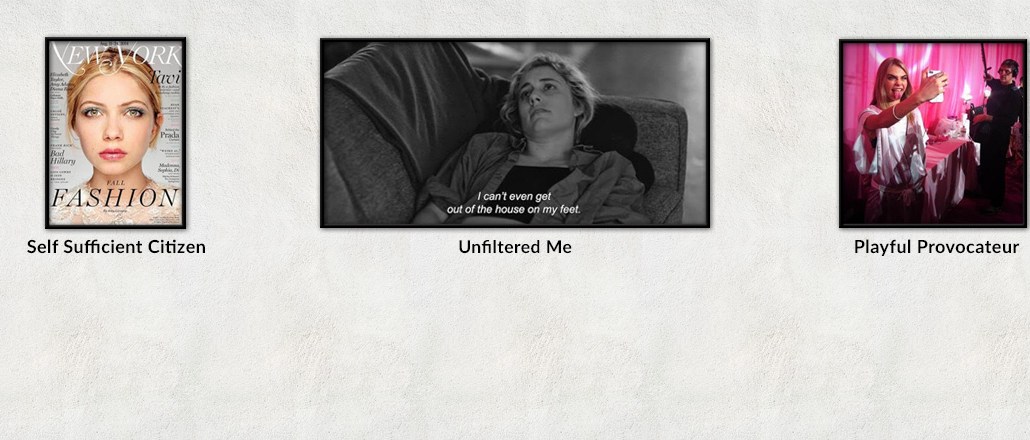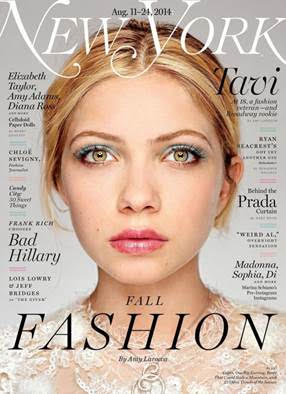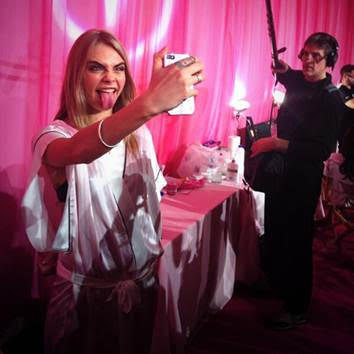Secure your place at the Digiday Publishing Summit in Vail, March 23-25

Laura Tarbox is strategic director at global marketing consultancy Added Value
This week, R/GA’s Jess Greenwood posted to Medium a hilarious account of what happens when the entire advertising industry works from the same millennial research. Because paraphrasing could never hope to do justice to Greenwood’s satirical genius (no, we don’t know her, we just want to), here’s a choice excerpt from the post:
Here are millennials. They are in a car. They are carefree. They drive wherever the wind takes them, because they are millennials. One of them has a guitar. They may be in a band, because they are millennials, and creativity is important to them. It is unclear how they have managed to afford this car. Millennials do not buy cars. They just go on road trips. They have beards, although our research suggests that having a beard may soon no longer be a millennial thing to do. We’ll get back to you.
As Greenwood suggests in this well-articulated piece, mainstream representation of this conspicuous cohort has become cliche, one-dimensional and, frankly, residual. If, as research suggests, millennials are constantly in search of the ‘new’, then being hit in the face repeatedly with a sun-dappled surface-level representation of what it is to be one of them isn’t going to cut it. Lest we forget – while they may be creative, in pursuit of ‘immersive experiences’ and more liberal than their forebears, they’re also cynical, multi-layered and not easily convinced. Not only that, but leaning on stereotypes is, to a millennial, the equivalent of dad dancing. Hashtag not cool.
Just as there is more than one way to skin a cat, so too is there more than one definition of what it is to be a millennial. Understanding some of the more interesting and culturally engaged genus could help your brand connect that bit better.
We wanted to offer up, then, a brief taxonomy of the millennial kingdom:
The self-sufficient citizen
Motto: “I stand on my own two feet.”
Who are they? Those who have a sense of agency over life – the presence of mind and strength of character to embrace every day and live life on their own terms, whatever that might mean.
Where we find them in culture: Tavi Gevinson, who at just 13, was a regular fixture at some of the fashion world’s most prestigious events and is now Editor-In-Chief at her very own magazine, Rookie; Kickstarter; urban gardening; Meetups.com; Hilary Duff’s character in TV series “Younger.”
And what’s driving them? Millennials place great value on independence and self-sufficiency – they try their own things, blaze their own path; they don’t judge people for unorthodoxy, and they’re certainly not fond of people (or governments or companies) who tell them what to do. This is a movement to embrace thinkers and doers in culture, not just those who look good (see, also: Ashton Kutcher’s “smart is sexy” Teen Choice Awards speech.)

Unfiltered me
Motto: “Oh no,” and sometimes, “Not again.”
Who are they? Those who embrace the imperfect and disheveled reality of what it is to be young. They openly wear the awkward fuck-ups, terrible interviews, broken dreams and trashed relationships in their daily existence that contribute to who they are, with no shame.
Where we find it in culture: HBO’s “Girls”; daily on Buzzfeed; the Noah Baumbach comedy “Frances Ha;” “Broad City”; “The Wrong Knickers,” a book in which author Bryony Gordon busts open the glamorized myth of what it means to be a young (perpetually) single girl living in London town.
And what’s driving them? The recession proved that the world, and America, isn’t perfect and has given way to a higher level of cynicism. As a result, millennials are the most cynical and distrusting generation ever recorded: only 19 percent think most people can be trusted, according to Pew Research Center. As a response, perhaps, there is a rejection or distrust of perfection and pretence, coupled with an embrace of authenticity and realism in all facets of life.

Playful provocateur
Motto: “Rules are there to be bent.”
Who are they? Those who break with the everyday to indulge in innocent mischief, gleefully and purposefully flout convention and break the rules, if only just for a little while.
Where we find it in culture: Model Cara Delevingne – the poster girl for backstage stylized mischief, not least taking a selfie while walking the runway for Giles Deacon; Glossier “a girl-powered company on a mission to rethink beauty”; Converse’s “Shoes Are Boring” campaign.
And what’s driving them? As people wait until later in life to get married — effectively clinging to youth — growing up happens later, providing a continuous release from the hectic and crazy nature of everyday life.

These bite-sized thought starters could help your brand avoid the dreaded dad dance in front of the most talked about generation in marketing today, using culture as our stimulus.
More than ever before, brands have an opportunity (and an imperative) to talk to millennials in ways that they will recognize and engage with. Simply parroting back stereotypes won’t cut it, and, worse, will likely mark your brand for ridicule, as something that just ‘doesn’t get it’. That’s where culture comes in. It can be your secret weapon in gathering and analyzing what millennials create and consume to find and understand the expressions that they connect with authentically — to help you, in turn, do the same.
More in Marketing

Yahoo pauses IAB membership amid a series of quiet cost-saving measures
Yahoo pulls IAB board memberships, following job cuts as PE-owner reportedly reconsiders ad tech investments.

Target looks to e-commerce, advertising investments to help grow the business
Technology is one of the most important areas in which Target will invest with the hopes of returning to profit growth.

‘The conversation has shifted’: The CFO moved upstream. Now agencies have to as well
One interesting side effect of marketing coming under greater scrutiny in the boardroom: CFOs are working more closely with agencies than ever before.





